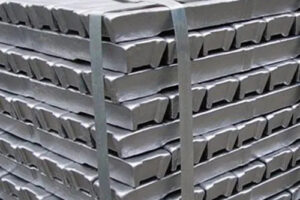Die casting alloys

Die casting is a popular manufacturing process used to create complex and high-quality metal components. One of the critical factors that determine the success of die casting is the selection of appropriate die casting alloys. These alloys provide the desired strength, durability, and other properties required for specific applications. In this article, we will delve into the world of die casting alloys, exploring their types, properties, and applications.
Types of Die Casting Alloys:
It can be broadly classified into three categories based on the materials used: aluminum alloys, zinc alloys, and magnesium alloys.
1. Aluminum Alloys:
Aluminum alloys are the most commonly used materials in die casting due to their excellent combination of strength, lightweight properties, and corrosion resistance. Some popular aluminum used in die casting include ADC12, A380, and A383. These alloys offer good fluidity, castability, and mechanical properties, making them suitable for a wide range of applications across various industries.
2. Zinc Alloys:
Zinc alloys are known for their high dimensional stability, excellent surface finish, and low melting point. They are often preferred for their ability to produce intricate and precise components. Zamak alloys, such as Zamak 3, Zamak 5, and Zamak 7, are widely used in casting applications due to their excellent castability, corrosion resistance, and cost-effectiveness.
3. Magnesium Alloys:
Magnesium alloys are lightweight and possess excellent strength-to-weight ratios, making them particularly suitable for applications where weight reduction is a critical factor, such as in the automotive and aerospace industries. AZ91D and AM60B are commonly used magnesium alloys in casting. They offer good mechanical properties and excellent castability.
Properties of Die Casting Alloys:
It exhibit specific properties that make them suitable for various applications. Some key properties include:
1. Strength and Durability: It offer high strength and durability, ensuring the integrity of components even under demanding conditions.
2. Lightweight: Many casting alloys, especially aluminum and magnesium alloys, are lightweight, making them ideal for applications that require weight reduction without compromising on strength.
3. Excellent Surface Finish: It produce components with excellent surface finishes, reducing the need for additional finishing processes.
Applications of Die Casting Alloys:
It find applications in a wide range of industries, including automotive, aerospace, electronics, and consumer goods. Some common applications include:
1. Automotive: Engine components, transmission parts, brackets, and housings.
2. Aerospace: Structural components, housings, and brackets.
3. Electronics: Connectors, heatsinks, and enclosures.
4. Consumer Goods: Furniture hardware, sporting goods, and household appliances.
Conclusion:
The selection of appropriate die casting alloys is crucial to achieving high-quality, durable, and cost-effective components. The choice of alloy depends on specific application requirements, such as strength, weight reduction, and corrosion resistance. Aluminum, zinc, and magnesium alloys are the most commonly used casting materials, each offering unique advantages. By understanding the properties and applications of various casting alloys, manufacturers can make informed decisions and produce components that meet the rigorous demands of modern industries.




